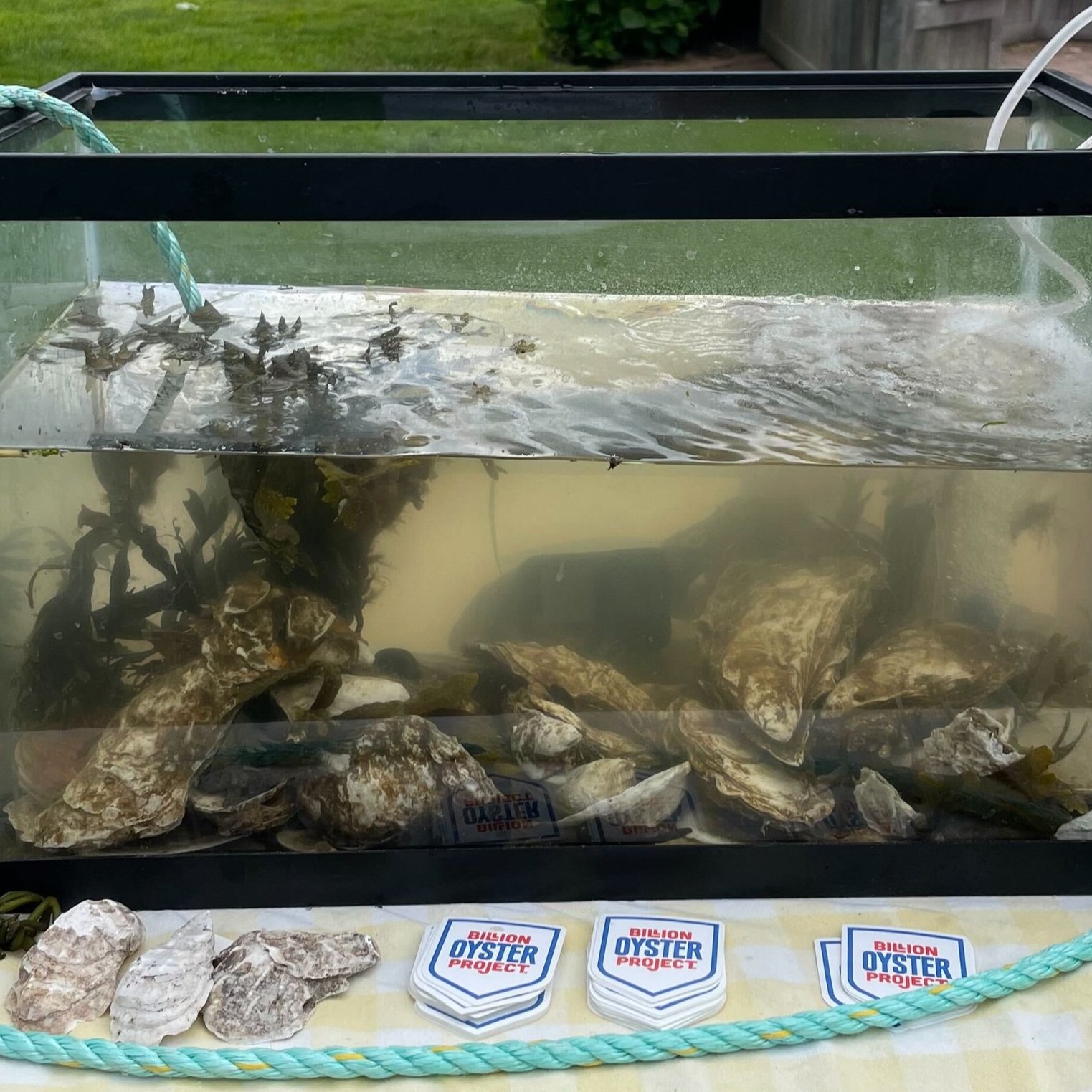2.5 million Pounds of discarded shell from OVER
100 NYC restaurants are transforming new york harbor.
Restaurant to reef
We’re Billion Oyster Project and we restore oyster reefs to New York Harbor with the shells from your table. Thank you for being part of New York’s coolest recycling initiative.
It took less than 100 years for New Yorkers to destroy 220,000 acres of native oyster reefs in New York Harbor and with it, an entire marine ecosystem. Now, the Billion Oyster Project is rebuilding these reefs to restore wildlife to our waterways and reconnect our city to its vibrant waterfront.
GET INVOLVED
Keep in touch with us
We’re based on Governors Island, but our field work takes place across the boroughs. Sign-up for our quarterly newsletter and stay up to date with our numbers, events, and upcoming visit opportunities.
Love eating oysters?
You can help! The oyster, clam, and scallop shells you eat from 60+ NYC restaurants become the foundation for new oyster beds across the Harbor. Becoming a Billion Oyster Project Member gives you access to free oysters at our partner restaurants and more additional perks!
why oysters?
Filtering Water
The average adult oyster can filter up to 50 gallons of water a day.
Creating Habitat
Like coral, oyster reefs are home to marine life and increase biodiversity.
Protecting shorelines
Rocky oyster reefs break strong waves and minimize erosion.







